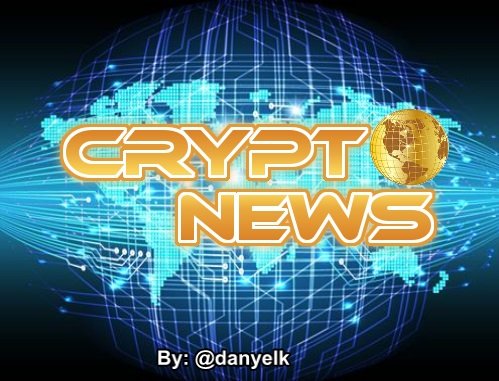
- G20 Summit: France for stronger Regulation of Bitcoin!
- Boeing is working on Blockchain Solution for securing GPS Data!
- Mobile Coin: New Cryptocurrency from Signal-Protocol Inventor Marlinspike!
- DropDeck.io becomes Part of the PIN Community!
- Bitcoin is becoming less and less useful as a Means of Payment - but maybe that does not Matter so much ...



French Finance Minister Bruno Le Maire wants to hold a detailed discussion on Bitcoin at the next G20 summit in order to regulate it more. Le Maire wants to propose this agenda item for the current G20 presidency Argentina. This he said on Sunday the French television station La Chaîne Info (LCI).
The Group of 20 (G20) is an informal association existing since 1999, consisting of 19 industrialized and emerging countries plus the European Union. The G20 Summits will be used to discuss issues of the international economic and financial system and to coordinate other issues.
As the French news channel LCI reports, France's finance minister is pushing for more regulation of cryptocurrency at the next meeting of the world's major industrial and emerging economies. Argentina has held the presidency since December 1, which is why Bruno Le Maire intends to propose to Argentina that stricter Bitcoin regulation be addressed at the summit next April. In an interview with LCI, the finance minister said there was evidence of speculation risk. This risk must be further highlighted as well as regulated. A former diplomat, appointed Minister of Finance by President Emmanuel Macron, would not have expected it. Macron's political movement "En Marche" is commonly accused of rejecting any regulation of markets in the spirit of neoliberalism.
Agreement: EU wants to prohibit anonymous transactions
However, the signals that were sent out from Brussels at the end of last week are fitting. Last Friday, representatives of EU states and MEPs came to terms after lengthy negotiations. Among other things, the new Anti-Money Laundering Directive addresses greater transparency in financial transfers and the fight against money laundering, financial crime and terrorist financing. Also anonymous transactions of virtual currencies on online trading platforms should be prohibited within the European Union. But it will take some time until the laws in all EU countries are active. First of all, the new regulation is subject to approval by the European Parliament and all EU states. Then, however, it would have to be transposed into national law within 18 months.


A new patent application from Boeing provides a way to protect GPS receivers in aircraft and other vehicles with blockchain technology. The planned system is called "on-board backup and anti-spoofing GPS" and should save GPS data and above all to protect against manipulation.
First of all, the system is all about moving vehicles of any kind through their environment with the help of GPS data more reliably than before. As unreliability and even manipulation of data can still occur at the moment, Boeing is currently working on the development of a blockchain solution.
The name of the intended program consists of the two main functions. Once the developers foresee an on-board backup, ie a backup on the respective devices. Furthermore, the system should provide an anti-spoofing GPS. This is a program that protects against external interference with the data. These two programs are finally in communication with each other to secure the GPS signals.
Blockchain should protect against GPS spoofing
Furthermore, the system should protect against so-called GPS spoofing. Spoofing is the emission of interfering signals that superimpose and mimic the original GPS signal. The transmitted position data is then valid, but contains incorrect information about the location. This can eventually be manipulated courses of aircraft, ships or drones.
The application for the patent was filed with the US Patent Office. The developers of the world-famous airline plan so a block chain protection system, which should also protect against fraud. The final product will ultimately have a complementary function and will (for the time being) only be used if the standard system fails.
The blockchain technology will then store GPS data and then, if necessary, forward it to the system with the help of smart contracts if the anti-spoofing system detects potential dangers.
The use of blockchain technology as a hedge mechanism in transportation has already been considered elsewhere. For example, the French Société Internationale de Télécommunication Aéronautique is working on a blockchain solution to collect and store flight data.


With the messenger app Signal and the Signal Protocol also used by Whatsapp Moxie Marlinspike has achieved a great coup. He wants to repeat it now with a Bitcoin alternative.
Just a year ago, cryptocurrencies like Bitcoin were the big hope for anonymous payers online. At least since the Bitcoin course breaks new records, more and more developers are working on possible alternatives.
Moxie Marlinspike, the inventor of the Whatsapp Signal Protocol and the Signal Messenger, has now submitted a proposal with Mobilecoin. Together with developer Joshua Goldbard and lawyer Shane Glynn, he has announced that he will develop an easy-to-use cryptocurrency that bypasses the vulnerabilities of Bitcoin, enabling, for example, monetary transactions directly into messenger apps such as Signal or Whatsapp. With an extremely volatile exchange rate of almost $ 20,000 per Bitcoin, the currently most popular digital currency has become virtually unusable as a reliable means of payment.
Role model Signal: easy operation for everyone
With Mobilecoin not only the user interface is to be radically simplified, but also the complexity of the technology has to be shifted away from the user. "At Mobilecoin, we believe that not all clients have the ability to participate in a P2P network," states the Mobilecoin White Paper. Instead, rely on a federated network where servers (called nodes) do most of the work, such as confirming transactions and managing keys.
Goldbard told Wired:
Server trust thanks to Intel's SGX
In order to achieve a high level of privacy and data protection despite server-side key management, Marlinspike's team intends to use Intel-developed Software Guard Extensions (SGX). SGX is a separate hardware-encrypted area of Intel CPUs with full computing capabilities, but is protected from access by the operating system and any installed software.
For example, it should be possible to outsource security-related operations, such as financial transactions and key management, to a potentially untrusted server without jeopardizing the security of the transaction. Digital signature validation should also allow SGX clients to remotely verify the authenticity of code running within the enclave. Not even admins of a Mobilecoin node with full root access to the server should be able to see what is happening in the enclave. "If you can not see the blockchain ledger, how are you going to manipulate it?" Goldbard says confidently.
Even if an attacker succeeds in taking over an SGX enclave, the privacy of users and the security of the system should continue to be protected. By using one-time addresses and signatures, attackers continue to find it impossible for Mobilecoin creators to link specific transactions and users.
Dependence vs. usability
Mobileco's dependence on Intel's SGX could turn out to be both a strength and a weakness. It's already said that it's not a good idea to depend on the hardware implementation of a single US corporation. Especially if this, like Intel with its management engine, has not been famed for its security and transparency.
Disclaimer: The information presented in this post is not a recommendation for purchase or sale. It is only an opinion of me the author. They serve merely to describe the project and are not to be understood as an investment analysis.


Dubai will soon be the first city in the world to have self-flying taxis and robocops. There is no better place than Dubai to talk about advanced technologies and effective projects. On December 13, 2017, the PIN community gathered 100 executives from 20 countries in a humorous event at the Hyatt Regency Hotel in Dubai to discuss the technologies of the future - blockchain, artificial intelligence (AI) and big data. It was mainly about the "Sharing Economy 2.0" which is to be integrated and further developed within the PIN platform.
Initially, Grace Ezzell's founder, Refugees + Blockchain, opened the conference with a provocative video about "a new money enabled by the blockchain" and an overview of blockchain, cryptocurrency and their ubiquitous utility programs in the near future. Alon Vo - co-founder of DropDeck.io - went on stage to talk about AI and big data, later Grace came back on stage to address "sharing economy" as the final piece of the puzzle.
Following Grace, Jimmy Robinson was greeted by the board of the PIN Community in Dubai to talk about the PIN community and its roadmap to combine all four featured elements (Blockchain, AI, Big Data and Sharing Economy). These include the Collaborative Investment & Saving Portal, Direct Ad Network, PIN Auction, and PIN Pay. Already 40,000 users from over 20 countries can be counted after just one week.
In the end, Jimmy invited Alon back to the stage to talk about DropDeck.io and the latest advances. DropDeck.io is a one stop shop for financing companies worldwide. It complements artificial intelligence with the incentive mechanism of the token and decentralization of the financing process with intelligent contracts.
DropDeck.io is a project with a sophisticated concept that includes a world-class white paper, an all-star team, a large community of 4000 members, more than 200 publications around the world, reviews of famous Youtubers such as Jsnip4, and numerous rewards in AI (artificial intelligence), blockchain and general innovations (from Switzerland and Israel).
In search of advanced technologies and talented teams around the world, the PIN community has found DropDeck.io, which has been selected as a promising candidate. After exactly such a partner, the PIN community has searched to develop further. While the PIN community is the largest homogeneous community in the crypto space to promote sharing economy 2.0, DropDeck.io has the greatest potential to leverage AI, big data, and blockchain to move Sharing Economy 2.0 much more forward.
To bring these strengths together and become the strongest sharing community in crypto-space, the PIN community announced the acquisition of DropDeck.io, which will be added to their PIN platform. On this platform, PIN owners can spend their PIN tokens on fundraising startups and SMEs, promoting innovation around the world. Overall, the timetable of DropDeck.io's roadmap will shift slightly to smoothly handle the upcoming changes.
As the strong, homogeneous and financially stronger community of the PIN community brings much more volume, speed and manpower, the development of later stages like DropDeck.io Automated Funding will be accelerated. His A.I. Engine also integrates with PIN Platform products, such as the Collaborative Investment Platform and Direct Ad Network.
The PIN community will purchase the DropDeck.io project, including all Decentralized DropDeck tokens (DDD tokens), all donations collected, and all team members. DDD token holders have two options:
- They can either be paid in Ethereum tokens or
- The DDD tokens can be exchanged for PIN.
The token has great potential and can rise sharply in the year 2018. The DropDeck.io development team will join the PIN community. Its two co-founders - Alon Vo and Michael Phan - will resign and become project advisors. They will maximize the synergy of DropDeck.io within the PIN platform and the sustainability of both platforms as a whole while pursuing their new venture, DecenTrust.io - a decentralized microfinance platform for non-banks.
With its strengths, DropDeck.io, as part of the PIN community, is helping to establish a strong, sustainable ecosystem and token (PIN) and make Dubai an innovative crypto location.


As a means of payment in everyday online shopping Bitcoin is currently a disaster. As a digital gold, the cryptocurrency provides a superior performance. The question of what Bitcoin is now, should be decided so.
Anyone who has tried in the last weeks to pay something under 100 Euro with Bitcoin, should have looked into the tube. The fees are exorbitantly high, the duration of the confirmation endlessly long. In the end, you did not know if you were paying or not, push money back through PayPal when in a hurry, and, in the worst case, even get fivefold the amount of change as a change in MemPool. Bitcoin is currently not only impractical in online shopping, but a disaster.
No relief through SegWit
The fact is that more than 135,000 transactions are currently pending in the MemPool and waiting to receive a confirmation. That's around 195 megabytes, which is 50 megabytes more than Bitcoin's daily capacity. It's as if there were more than one dayload of passengers at the bus stops.
The MemPool had its all-time high recently and is at a strong 180 MB. Source: Jochen Hoenicke's MemPool visualization
Core's long awaited scalability solution, SegWit, will have virtually no effect four months after activation. The rate of SegWit transactions stagnates at around 10 percent, the average block size has risen to just 1.05 megabytes. This clearly outperforms the forecast I made last summer for SegWit's capacity gain - and my forecast was already pessimistic compared to what was promised elsewhere.
By contrast, SegWit is stagnating at around 10 percent. Source: Count SegWit
A way out is not really in sight. It will not switch to 50 or 80 percent of all transactions on SegWit overnight, and while the Lightning network is progressing well, it will take a long time to really be useful for everyday transactions. An increase in blocksize does not seem to be an option, as the Bitcoin community has recently been so fierce against them.
The deconstruction of bitcoin acceptance
So it can be normal that you have to pay more than 300 Satoshi per byte to get a quick confirmation. These are currently around $ 12 for very simple transactions, but if you make more complex transactions out of more inputs, you'll quickly get $ 25 or $ 35.
The daily revenues of miners through transaction fees have reached more than $ 10 million. Source: Blockchain.info
No wonder the bitcoin acceptance tends to decline. After Steam stopped Bitcoin as a means of payment last week, gpuShack, a mail order company for mining hardware, followed. GpuShack has accepted Bitcoin since 2014, but has closed its acceptance on December 16th. Coinbase's API, through which the site accepts Bitcoins, "can no longer estimate when a transaction will be confirmed (if at all), which is an unbearable burden on our customer support."
Similar cases are expected to follow. Ironically, this also applies to Bitcoin hardware wallets like Ledger and Trezor. Unless something surprising happens, we will probably see the deconstruction of Bitcoin acceptance in online shopping in the coming months.
Who wants Steam Keys, even if aircraft carriers go?
One can complain about it, clearly, can say that this was not the idea of Bitcoin and the cryptocurrency has now failed. And so on.
But you can also see it as the beginning of a new section in the development of Bitcoin. Because as digital gold or new asset class Bitcoin shines like never before. The price reaches fantastic heights and attracts altcoins; Bitcoin is traded as a future on the cboe and also on the CME; Banks, asset managers and private investors have awakened and want to add Bitcoin to their portfolio; and it's now a widely recognized fact that Bitcoin is a wonderful digital value store.
It may be that with Bitcoin you can no longer buy Steam games, burgers, VPN keys, mail accounts, webdomains and so on. But it could be that central banks will soon keep Bitcoin in their baskets of reserve currencies, which bitcoins will be used to buy oil freighters, planes, trains, locks or islands. Bitcoin could become the global arithmetic unit, a power currency for corporations, states and super-rich, a network that sends millions of dollars safely, quickly and cheaply. In short, the center of the world economy.
Buying Steam Keys or graphics cards with such a beast could be like putting a nuclear power plant in the garden to power its stove. It has mercilessly overran. Bitcoin is the chance to have a stake in the future power money. Does it really matter that you can no longer pay in online shops with Bitcoin?
Probably not. But the community will have to get used to the new reality of Bitcoin and there are other options like Litcoin, Dash, Monero etc.
In case you missed my Crypto News from yesterday just click HERE!

I wish you all a lovely Tuesday!!!
ⓁⓄⓥⒺ & ⓁⒾⒼⒽⓉ
Best regards
@danyelk
.gif)


